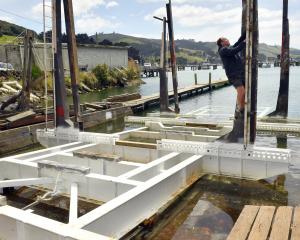Trade unionists were quick to write off the Government's plan for a new, low, starting pay today, while business leaders said it would help create jobs.
Labour Minister Kate Wilkinson said the "starting-out'' wage of $10.80 an hour would allow employees to pay eligible 16 to 19-year-olds no less than 80 per cent of the minimum wage, which is $13.50 per hour.
Ms Wilkinson said the introduction of the new wage, from April 1 next year, would help provide young New Zealanders with more opportunities to get into the workforce.
"The new starting-out wage will help some of our youngest and most inexperienced workers get a much-needed foot in the door, in what is currently a tight labour market,'' she said.
The starting-out wage - one of National's 2011 campaign promises - was designed to provide 16 to 19-year-olds with the opportunity to earn money, gain skills and get the work experience they need, she said.
Three groups will be eligible unless they are training or supervising others:
- 16 and 17-year-olds in their first six months of work with a new employer
- 18 and 19-year-olds entering the workforce after more than six months on benefit
- 16 to 19-year-old workers in a recognised industry training course involving at least 40 credits a year.
Food Service and Food Workers Union national secretary John Ryall said the Government's plan to cut pay for 16 to 19-year-olds would not create jobs or give young people any skills.
"The minimum wage is already too low for anyone to live on, and forcing our young people onto even lower rates will condemn them to poverty,'' he in a statement.
But Business NZ chief executive chief executive Phil O'Reilly said employers having to pay unskilled teenagers at adult rates made it hard for many young people to get a job.
"Not being able to get that initial job prevents many young people from gaining workplace skills, further reducing their future employment chances,'' he said.
"A starting-out wage at 80 per cent of the minimum wage for the first six months' employment will make it easier to employ a young person so they can gain those vital workplace skills,'' he said.
Mr O'Reilly said the policy would particularly benefit teenagers who were vulnerable to being trapped on a benefit through being unable to compete effectively for a first job.
The official youth wage was abolished in 2008.
David Lowe, Employment Services Manager for the Employers and Manufacturers Association, said that without an incentive an employer with a choice between an experienced worker and an inexperienced worker would choose experience every time.
"Though there is no silver bullet for creating jobs for young people, the starting-out wage offers a vital first step up the employment ladder,'' he said.
"Unless there is an incentive for taking on the added issues of employing youth workers, young people will continue to be over represented in the unemployment numbers,'' he said.
Announcing the policy last year, Prime Minister John Key had said the lower wage would encourage employers to take on youth, rather than more experienced workers.
The latest Household Labour Force Survey showed 61,700 15 to 24-year-olds were unemployed - up from 41,100 four years ago.
The Council of Trade Unions said reducing wages for young people was not a solution for the high youth unemployment rate.












